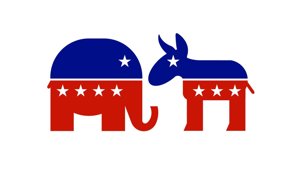
Liberal Writer Urges Cutting Off Trump-Supporting Family
A New York Magazine writer claims it is “good” to cut off Trump-supporting family members, sparking debate over political and family boundaries.
Columnist Endorses Political Division Within Families
The debate over how political views should influence family relationships reignited this week as Sarah Jones, a politics writer for New York Magazine’s Intelligencer, advocated for shunning relatives who support President Donald Trump. In a sharply worded column published Friday, Jones argued that distancing oneself from “MAGA relatives” is not only permissible, but often the morally correct choice in today’s polarized climate.
“It’s okay to go no contact with your MAGA relatives,” Jones wrote, dismissing the idea that political neutrality in personal relationships is possible. She maintained that personal values should take precedence over familial ties when it comes to deeply divisive issues. “Sometimes the act of knowing a person leaves you with no choice but to move on without them. If my parents liked Alligator Alcatraz, I’d no longer speak to them. If they were rude to my LGBT friends, I’d block their numbers.”
Her remarks came in direct response to a guest essay in The New York Times by former Obama White House speechwriter David Litt, who argued for reconciliation with conservative family members. Litt described reconnecting with his brother-in-law, an unvaccinated Joe Rogan fan, through shared activities like surfing. That experience, he said, helped him move beyond past resentments and rethink the wisdom of shunning family over politics.
However, Jones ridiculed Litt’s approach as “so naïve it borders on malice,” and questioned whether civility is sometimes merely a shield for bad behavior. “Too often, civility is another word for impunity,” she wrote, suggesting that attempts to keep the peace may ultimately do more harm than good.
Jones argued that ignoring deep political differences for the sake of family harmony is misguided. “It’s good, actually, to have values and draw lines accordingly, even if there’s a chance someone will overcorrect,” she wrote. “Politics never stopped at the family front door. Why pretend otherwise?”
Broader Trend Among Media and Commentators
Jones’s position reflects a growing sentiment among some liberal commentators, especially since the contentious 2024 election. In the days following President Trump’s victory, media figures and guests on programs like “The View” and “The ReidOut” openly discussed the merits of distancing oneself from Trump-supporting loved ones, particularly during holiday gatherings. The conversation has sparked intense reactions on both sides of the political divide, with some defending family unity and others supporting Jones’s call for moral clarity.
Yale University’s chief psychiatry resident, Dr. Amanda Calhoun, echoed similar thoughts on national television, arguing last November that family members are not entitled to one’s time if their beliefs are deeply objectionable. “There is a push, I think just a societal norm that if somebody is your family, that they are entitled to your time, and I think the answer is absolutely not,” Calhoun stated.
The ongoing debate illustrates the profound impact of political polarization on American families. While some advocate for reconciliation and open dialogue, others insist that maintaining strong personal boundaries and values is essential—even if it means severing long-held family ties. As the nation grapples with deepening divisions, questions about the limits of civility and the role of political beliefs in personal relationships are likely to remain at the forefront of public discussion.






